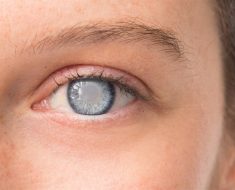NEW YORK (Reuters Health) – Having more than one sleep problem increased an individual’s risk of heart disease by up to 141% in a retrospective analysis.
“We know from previous research that short sleep duration increases the risk of cardiovascular disease, dementia, and early mortality,” Dr. Soomi Lee of the University of South Florida in Tampa told Reuters Health by email.
“Sleep health can be defined by regularity, satisfaction, alertness during waking hours, age-appropriate sleep timing, high efficiency during sleep, and sufficient sleep duration,” she said. “Previous research mostly focused on sleep duration only, which might have underestimated the impact of sleep on health risk. Someone with sufficient sleep duration can still have poor health, if he/she has problems in other sleep dimensions.”
“Importantly,” she added, “in our study, sleep duration — the most widely studied sleep variable — was not significantly associated with heart disease, either based on self-report or actigraphy. This was surprising given the reported associations of short or long sleep duration with multiple health outcomes.”
Dr. Lee and colleagues reviewed sleep data from 6,820 adults (mean age, 53.4; about 56%, women) from the Midlife in the United States study. All participants self-reported sleep characteristics as described by Dr. Lee and heart disease history; a small sample (663) provided actigraphy sleep data as well.
Using a weighted sum approach, where higher scores indicated more sleep health problems, and after adjustment for sociodemographics and known risk factors, having more sleep health problems was associated with a higher risk of heart disease using the self-report sleep composite (adjusted relative risk, 54%) and the actigraphy/self-report composite (aRR, 141%).
Specifically, individual sleep dimensions of satisfaction, alertness, and efficiency (from the self-report composite) and regularity, satisfaction, and timing (from the actigraphy/self-report composite) were associated with the risk of heart disease.
Differences in sleep health composites and heart disease were seen by sex and race. Compared to men, women had slightly more sleep health problems based on the self-report, but no sex difference in the actigraphy/self-report sleep health composite. Although men were more likely than women to have heart disease, sex did not moderate the association between sleep health composites and the risk of heart disease.
In addition, Black individuals had the highest number of sleep health problems, followed by all other races, and then non-Hispanic whites.
Dr. Lee said, “In clinical settings, it may be important to ask about a patient’s sleep to identify those with a higher health risk. As sleep is modifiable, having a conversation about sleep could be considered a routine preventive care strategy.”
Dr. Alex Dimitriu, founder of Menlo Park Psychiatry and Sleep Medicine Sleep in California, commented in an email to Reuters Health, “I believe sleep should be considered a vital sign, along with heart rate, respirations, and blood pressure. I often see sleep as the tip of the iceberg – and if something is wrong with sleep, it is rarely in isolation.”
“The finding of sleep disturbance and comorbid heart disease, fortunately, is not a strong association in my practice,” he said. “Nonetheless, I do see associations between sleep disturbances and arrhythmias, as well as hypertension (and) metabolic syndrome. We also see tremendous overlap between sleep issues and mental health issues such as anxiety, depression, substance use, ADHD, and memory problems.”
SOURCE: https://go.nature.com/3BlgMkw Scientific Reports, online February 7, 2022.
Source: Read Full Article





